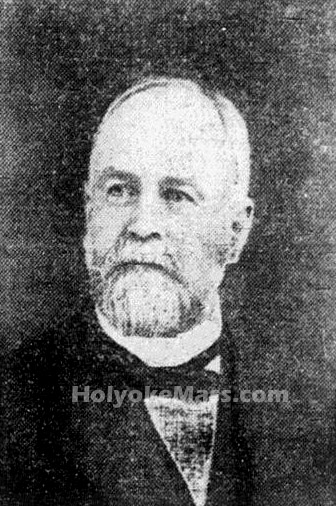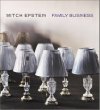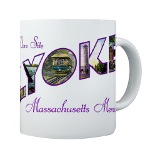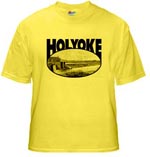by Laurel | March 7th, 2013
31 May 1903
Whiting Street’s Personal Traits.
As previously noted, Whiting Street’s brother Alpheus was the only member of the family who married. He had one son, Henry, and three daughters, Mrs. Eliza Smith, widow of Albigance Smith. “Polly Ann Houston, the wife of Robert A. Houston, and Harriet Adaline Street, single woman,” reads the will but the latter subsequent to the making of the will, married Joseph A. Houston. Henry Street marries Miss Nancy Hunter of Holyoke and one child survived that union Whiting Bradley Street, whose death was recently noted in The Republican. Whiting Street was very fond of young Bradley Street, and as he was the only male descendant in the street line, had he developed into a manly young fellow and practiced a few of the old-fashioned virtues, there is no knowing what his grand uncle would have done for him. Even as it was, with his habits a reproach to the family, his uncle Whiting, with almost pathetic solicitude incorporated into his will the clause that should provide for him and prevent him from coming to want, either him or his family, should he have a family.
Limitless are the stories that have been told of Whiting Street’s “closeness,” which closeness it is claimed only held true regarding his own personal expenses. With him in the Street house lived his maiden sisters “Polly” and “Sally,” and his bachelor brother Jesse. It is related with a good deal of confidence that when Saturday night came around, steadfast to the New England traditions of baked beans and brown bread, for that evening’s meal they baked the Bostonian dish; and that each of the four would previously slice off the size of port that he or she wished and tie a certain color string to it, so each would know their own when the bean pot was withdrawn from the oven. However this may be, all witnesses testify to the cleanliness and order that prevailed in the Street home; the furniture was not expensive, but everything was kept spick and span, as is generally the case when spinsters abound.
Dr. Hastings recalls at one time that his father bought of Whiting Street the farm now occupied in part by the Mt. Tom Golf Club. The next year, as he and his father were pulling a few turnips from a fine piece that had been raised on the plat next to the road, near the present golf club house, Whiting Street passed don his way to his cousin’s Fred Street’s, and passed the time of day.
“How much will you sell me a couple of bushels of those turnips for?” he asked. “Well,” Mr. Hastings replied, “I’m getting 25 cents a bushel for them.”
“Well, I’ll take a couple of bushels then,” replied Mr. Street, and continued on his way.
After he had gone a stone’s throw, a thought occurred to him and he hastened back.
“Will you throw off five cents a bushel if I will pull them myself and take them down?” he asked.
“Why, yes,” was the reply, and he started on again, no doubt happy at the thought of having earned 10 cents — for does not the good proverb say that a penny saved is a penny earned? And he was net worth less than a quarter of a million, probably, at that blessed minute.
It is also related that at one time a council of war was held over the persistent demand of Jesse Street that he be furnished with tea from the common family fund. After due deliberation, the council ruled that Jesse could have his tea, provided he furnished it himself. The tea consumed in that family thereafter was said to be a minute quantity. A Holyoke man recalls that at one time he was sent to pay the interest on a $100 note. When figured up there was a difference of a fraction of a cent between the borrower’s account and Whiting Street’s/ Mr. Street remarked that in such a case when the fraction was greater than half a cent he considered that he was entitled to another cent, and received accordingly. Dwight O. Judd recalls that at one time, when his parents were living near where the soap factory is now located, several of Whiting Street’s cattle strayed out of their pasture on Mt. Tom and ventured away. Meeting Dwight and his brother Fred one day, he engaged them to search for the missing “critters.” The boys were 10 and 8 years old respectively. A search covering two days resulted in the finding and returning of the missing cattle. Boy-like, they discussed on the way as to what pay they might expect from Mr. Street. They knew that he was close, but they did not expect the emolument which they received. After hearing their story and leaning that all his cattle had been returned, the time that they had spent, the many weary mules that they had walked, he benevolently handed out to them, to be shared between them, a silver three-cent piece. With this accumulated wealth the boys returned sadly home.
Nearly across from his house during the boating days Whiting Street had a small store with a shed attached under which many a traveler in summer time, overtaken by a shower, took refuge. In this store a great quantity of supplies were kept — sugar, molasses, codfish, mackerel and it is feared New England rum at times could have been obtained. Later he had a store on Northampton Street next to Chester Crafts’ tavern, and at one time had an interest in the tavern itself, where were wont to congregate many characters of the day. Here came every spring a dealer in horses with a “string” which he sold to the farmers round about. Records of the old First Congregational Church, which now stands on the old street near the Crafts tavern show that Whiting Street was interested in the building of the church and his name appears on several bills of sale of pews in the church — for in the early days pews were sold as other property and in his will the pew in the First Congregational church was left to Whiting Bradley Street, whose use of it was never very extensive.
Adapted from The Springfield Republican.









